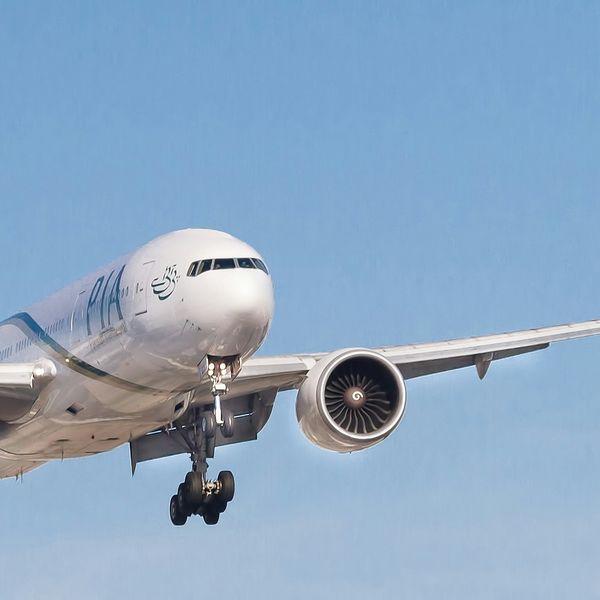Dubai pushes for adoption of remote work, flexible hours
New traffic flow plan aims to boost productivity and ease traffic congestion.
Dubai Desk
The Dubai Desk reports on major developments across the UAE, covering news, culture, business, and social trends shaping the region.

Dubai’s push for widespread adoption of flexible working hours and remote work policies aims to reduce traffic congestion by 30% during peak hours.
Shutterstock
Dubai is expanding remote work and flexible working hour policies across its public and private sectors.
Approved by Crown Prince of Dubai Sheikh Hamdan bin Mohammed bin Rashid Al Maktoum, the initiative reflects a strategic approach to support work-life balance, reduce traffic congestion, and elevate Dubai’s position as one of the world’s most livable cities, according to Emirates News Agency (WAM).
Encouraging flexibility across sectors
The newly-endorsed plan encourages both public and private organizations to embrace flexible work models, offering employees options for remote work and adjustable start times.
With the vision of balancing business productivity with personal well-being, Dubai’s Roads and Transport Authority (RTA) and the Dubai Government Human Resources (DGHR) department are spearheading efforts to establish a work culture that aligns with the city’s rapid growth and urban challenges, WAM reported.
Insights from survey findings
Two extensive surveys conducted by the RTA and DGHR served as the foundation for the initiative.
The first survey included 644 companies representing over 320,000 employees, while the second surveyed 12,000 private-sector employees.
Key findings from these surveys underscore the increasing acceptance of flexible work models:
1. 32% of private companies already have remote work policies, and 58% are ready to expand them.
2. 31% of companies offer flexible hours, while 66% expressed willingness to adopt such policies.
These results suggest that both employers and employees see value in flexible arrangements, particularly as the emirate grapples with traffic congestion and a growing demand for a more balanced lifestyle, according to WAM.
Traffic and productivity benefits
Implementing flexible work options has proven beneficial for reducing traffic congestion and boosting productivity. By allowing employees to work remotely for four to five days per month or choose a flexible two-hour start window, the study estimates a 30% reduction in morning peak traffic across the emirate, reported WAM.
For instance, if 20% of employees work remotely, traffic on key roads like Sheikh Zayed Road and Al Khail Road could decrease by 9.8% and 8.4%, respectively.
This reduction directly supports the Dubai leadership’s vision of a more efficient, less congested urban environment, easing daily commutes and offering a smoother travel experience for residents and visitors alike.
Building a New Workplace Culture
According to WAM, Abdulla Ali bin Zayed Al Falasi, director-general of the DGHR, emphasized the importance of evolving workplace policies to meet modern demands. “Our goal is to create policies and programs that promote employee well-being and happiness, in line with Dubai’s ambition to become the best city in the world for work and life,” he said.
Falasi highlighted that since the remote work system was adopted in 2020, it has become a foundational part of Dubai’s corporate culture.
Currently, 80% of government entities allow employees to work remotely two days per week, while 87% of employees feel that flexible working hours align well with their personal needs, and 89.4% report increased productivity.
Integration with Dubai’s urban development goals
Commissioner General for Infrastructure, Urban Planning, and Well-Being Mattar Al Tayer sees flexible work policies as a critical component of Dubai’s urban and transport planning. “Our strategy integrates flexibility across transport and mobility to match Dubai’s urban and economic growth,” Al Tayer explained.
The RTA’s approach prioritizes five key areas:
1. Expanding road networks
2. Enhancing public transport
3. Redistributing traffic demand
4. Advancing traffic control systems
5. Ensuring that these elements work together seamlessly.
These policies are not only beneficial to the workforce but are also expected to have a positive ripple effect across Dubai’s infrastructure and transit systems.
The RTA has implemented additional measures to encourage public transport usage and carpooling, such as expanding dedicated lanes for buses and taxis, restricting truck movement during peak hours, and enhancing first and last-mile connectivity options.
These measures aim to make public transport a viable and appealing option, further reducing reliance on private vehicles.







Comments
See what people are discussing